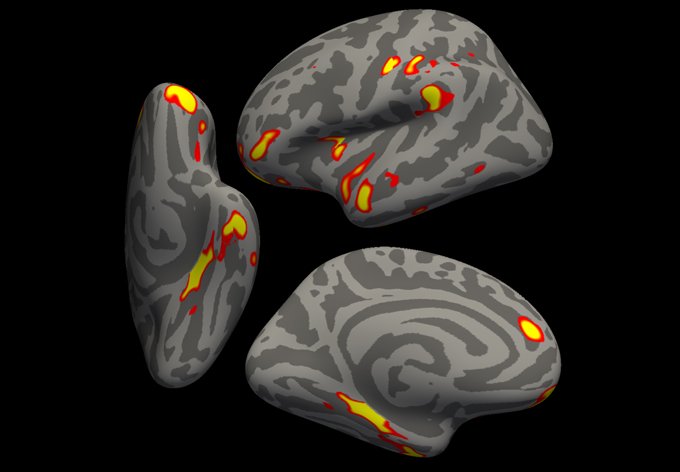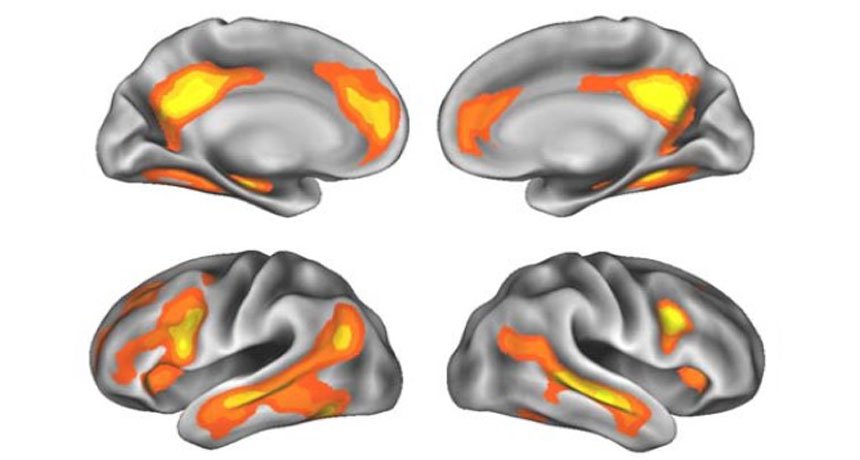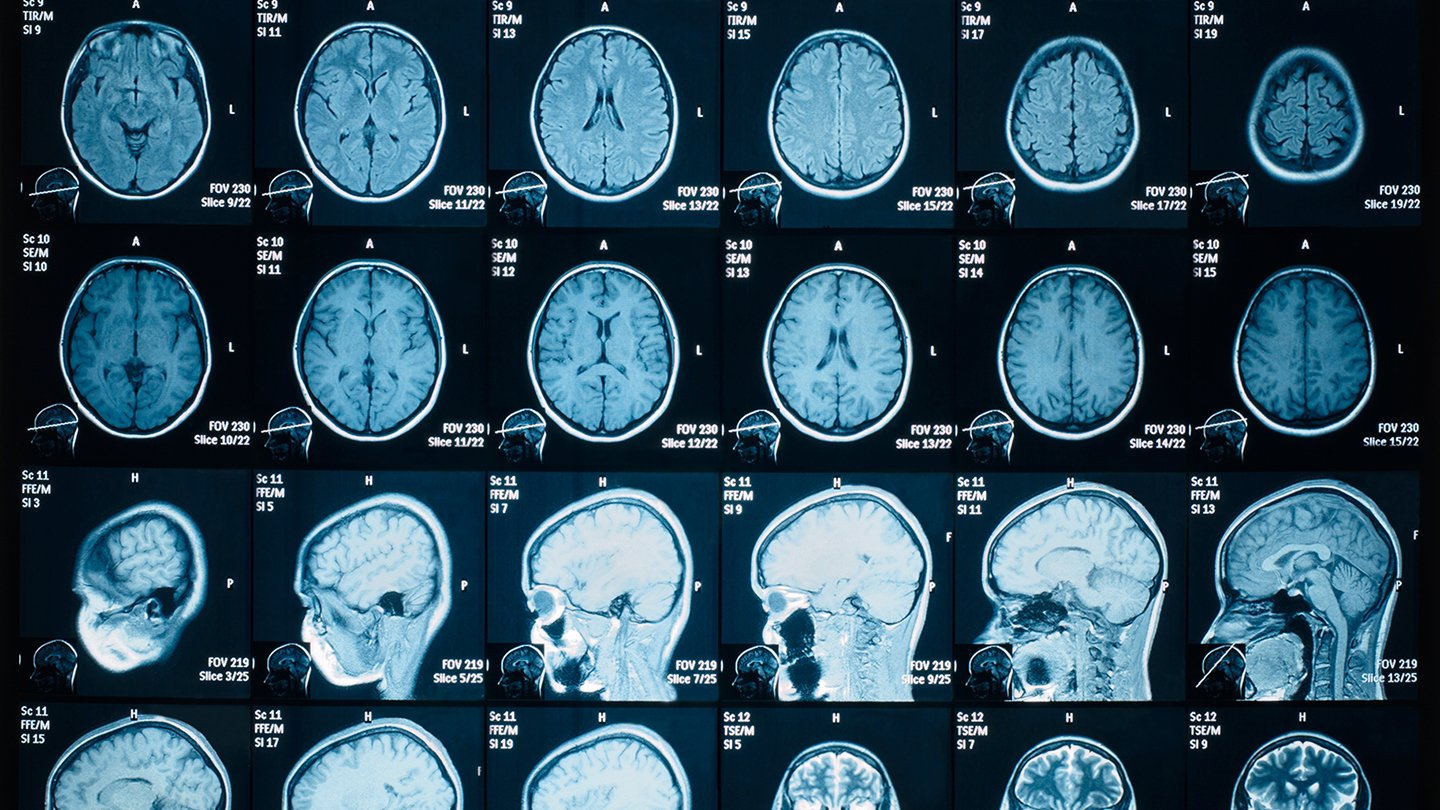Like all writers, I spend giant chunks of my time on the lookout for phrases. With regards to the ultracomplicated and mysterious mind, I would like phrases that seize nuance and uncertainties. The best phrases confront and deal with laborious questions on precisely what new scientific findings imply, and simply as importantly, why they matter.
The seek for the proper phrases is on my thoughts due to latest analysis on COVID-19 and the mind. As half of a giant brain-scanning research, researchers discovered that infections of SARS-CoV-2, the virus that causes COVID-19, have been linked with much less grey matter, tissue that’s full of the our bodies of mind cells.
The outcomes, printed March 7 in Nature, prompted headlines about COVID-19 inflicting mind injury and shrinkage. That protection, in flip, prompted alarmed posts on social media, together with mentions of early-onset dementia and mind rotting.
Signal Up For the Newest from Science Information
Headlines and summaries of the newest Science Information articles, delivered to your inbox
Thanks for signing up!
There was an issue signing you up.
As somebody who has reported on mind analysis for greater than a decade, I can say these alarming phrases should not those that I might select right here.
The research is without doubt one of the first to take a look at structural adjustments within the mind earlier than and after a SARS-CoV-2 an infection. And the research is meticulous. It was finished by an professional group of mind imaging researchers who’ve been doing this form of analysis for a really very long time. As a part of the UK Biobank venture, 785 contributors underwent two MRI scans. Between these scans, 401 folks had COVID-19 and 384 folks didn’t. By evaluating the earlier than and after scans, researchers might spot adjustments within the individuals who had COVID-19 and examine these adjustments with individuals who didn’t get the an infection.
After a bout of COVID-19, folks had, on common, much less grey matter in components of the mind that assist deal with the sense of scent. That’s an attention-grabbing discovering, particularly given the virus’s capability to steal folks’s sense of scent, and one which’s positively value an entire lot extra analysis (SN: 1/17/22). However it’s additionally not shocking, given what we all know in regards to the mind’s propensity to alter.
 Sure mind areas which are associated to the sense of scent have been smaller (crimson and yellow areas) after a SARS-CoV-2 an infection. Proven are three totally different views of the left aspect of the mind.G. Douaud, in collaboration with Anderson Winkler and Saad Jbabdi, College of Oxford and NIH
Sure mind areas which are associated to the sense of scent have been smaller (crimson and yellow areas) after a SARS-CoV-2 an infection. Proven are three totally different views of the left aspect of the mind.G. Douaud, in collaboration with Anderson Winkler and Saad Jbabdi, College of Oxford and NIH
I can rattle off an extended, lengthy record of issues that change the mind, equivalent to studying new issues, sleeping and utilizing a smartphone (SN: 9/5/17; SN: 6/5/14; SN 3/17/17). Studying the streets of London, juggling and meditating might all change the construction of the mind. Basically, the occasions of our lives are mirrored within the measurement, form and habits of our continuously altering brains.
Rising up is a kind of occasions that modified your mind. As a toddler, you had probably the most nerve cell connections in some components of your mind that you simply’ll ever have in your life. These overabundant connections have been then pruned and refined. In early adolescence, some components of your mind have been the biggest they are going to be, by quantity. Over your teenage years, components of your mind received smaller, a pattern that continues as you get older (SN: 10/14/15). Modifications proceed as you age (SN: 7/13/16).
“The mind is dynamic,” says neuroscientist Emily Jacobs of the College of California, Santa Barbara. “Much less doesn’t imply worse, essentially, and extra doesn’t imply higher.”
For example, Jacobs and her colleagues have discovered that mind areas develop and shrink over the course of days, adjustments which are tethered to hormone ranges throughout the menstrual cycle. This modification, discovered within the hippocampus, a mind construction tied to studying and reminiscence, and close by areas, “belies the notion that the mind is static,” Jacobs says. “As an alternative, we will see these ebbs and flows of adjustments.”
Being pregnant, and its ensuing hormone shifts, can even change the mind. In 2016, I lined a research that described pregnancy-related reductions in grey matter (SN: 12/19/16). That story raised the identical sticky query because the latest COVID-19 mind research about the proper phrases to explain this mind change. Within the being pregnant and mind research, have been the adjustments shrinkage or injury? Or to forged it in a extra optimistic gentle, was it maturing or sculpting? Research coauthor Elseline Hoekzema, a neuroscientist at Leiden College within the Netherlands, advised me again then that to her, the method appeared like a second stage of mind maturing, akin to the refinements that occur throughout adolescence.
 Being pregnant comes with reductions in sure components of a mom’s mind (crimson and yellow areas highlighted on 4 totally different views of the mind), a research from 2016 suggests. Researchers suspect that these mind areas have a task in connecting with the brand new child.OSCAR VILARROYA
Being pregnant comes with reductions in sure components of a mom’s mind (crimson and yellow areas highlighted on 4 totally different views of the mind), a research from 2016 suggests. Researchers suspect that these mind areas have a task in connecting with the brand new child.OSCAR VILARROYA
Jacobs additionally works on menopause, one other huge hormonal shift that impacts the mind. And she or he has preliminary proof that males’s brains change day-to-day, too. Like me, Jacobs additionally grapples with language when describing a few of these adjustments. Phrases matter, fairly a bit, she says. “You may paint [research findings] as a great factor or as a horror story.”
So which situation finest captures the brand new COVID-19 outcomes? It’s most likely secure to imagine {that a} viral an infection isn’t a great factor. However is it unhealthy for the mind, and in that case, how unhealthy? The reply, irritating although it might be, is that we don’t but know. “We have been fairly stunned to see clear variations within the mind, even with delicate an infection,” says Gwenaëlle Douaud, of the Nuffield Division of Medical Neurosciences on the College of Oxford. “The priority is that these damages will final and make contaminated folks extra weak to mind ailments sooner or later.”
However these variations might not final, Douaud says. The mind can “reorganize and heal itself to some extent, even in older folks,” she notes. It’s additionally potential that the adjustments the workforce sees are on account of an absence of scent enter. Different analysis has proven that stuffy noses can result in mind adjustments, too, a few of that are related to people who the researchers discovered within the latest brain-scanning research. Maybe these mind adjustments would reverse when the sense of scent returns.
Scanning the latest mind research contributors once more in just a few years will assist clear up the query of permanence. However for now, there isn’t any method we will say with any certainty whether or not these mind adjustments will linger — and what they imply for a wholesome mind. “We haven’t distinguished between what are regular adjustments and what should not,” Jacobs says.
Till scientists work out extra in regards to the mind, together with what mind adjustments are regular, reversible or inconsequential, we will’t probably know what’s worrisome. So for now, the proper phrases stay elusive.



